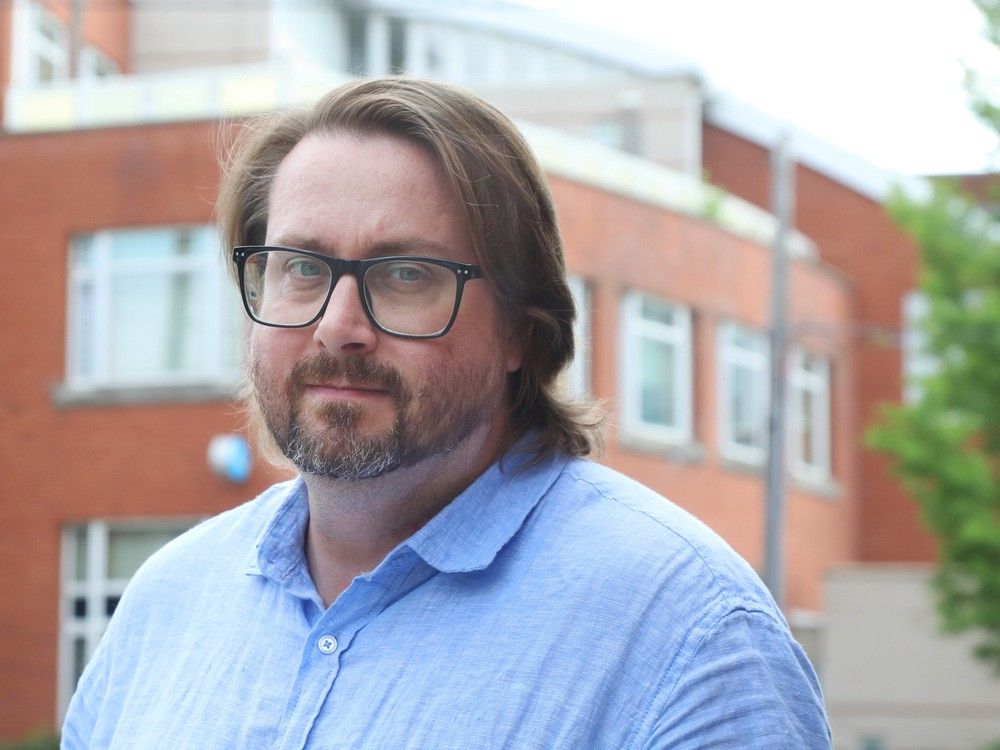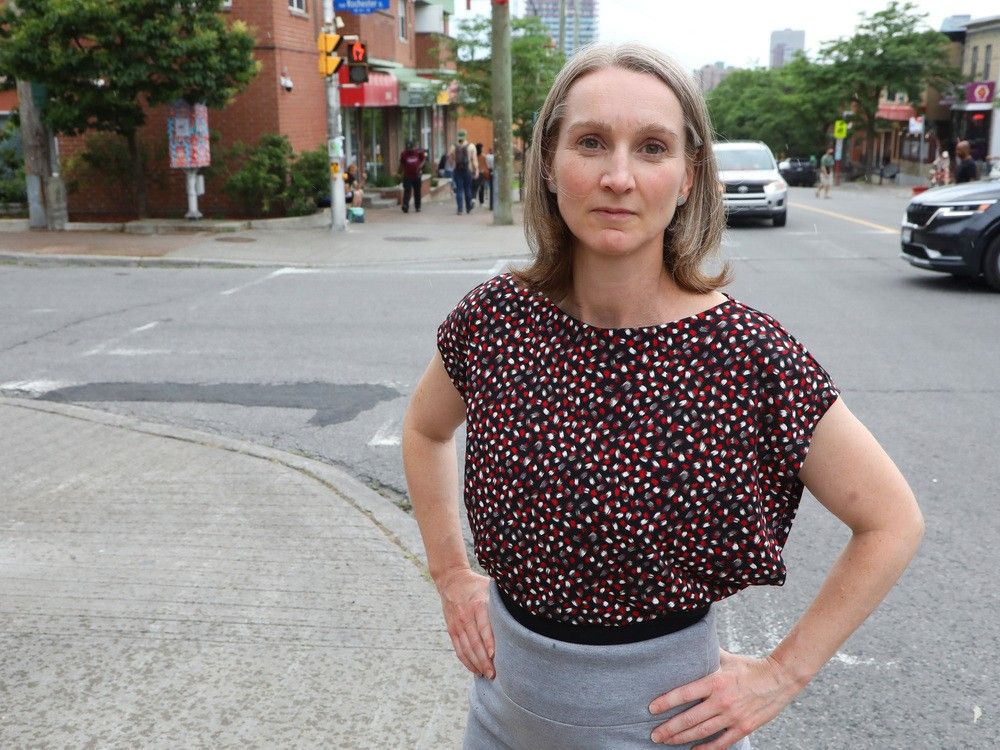After Hilary Davies’ 10-year-old son walked home one recent evening, she was terrified to learn a
stabbing
had occurred at that same time.
On June 24, a man was taken to hospital in critical condition after being stabbed on Eccles Street in the early hours of the evening. The following day, Ottawa police said the incident had been an attempted murder during an alleged robbery.
“If he had left five, 10 minutes earlier, he probably would have walked right into that altercation and had been a witness to the violence or potentially (been harmed),” Davies said. “That’s very, very scary.”
Since
the closure of the Somerset West Community Health Centre’s supervised consumption services
, Davies and her neighbours say they have noticed an increase in public drug use, violence and drug paraphernalia littered all over streets, parks and sometimes laneways.
Needle-hunters are often out and about, collecting used needles and drug paraphernalia from parks and most sidewalks that lead to schools. But Davies says she still notices needles on sidewalks.
“When we moved into the neighbourhood, these problems weren’t there,” she said. “(Ontario Premier) Doug Ford saying that this is to protect children has actually made it less safe for children to be in this neighbourhood.
“I don’t think he realizes that impact.”
By the end of March 2025, the provincial government had ordered the closure of 10 supervised consumption centres deemed too close to schools and daycares.
Davies, 46, said people would regularly sit on her front porch and use drugs, then leave paraphernalia around, including needles. So she got rid of her front porch. When she walks down the street with her children, she says, they’ve come across people who behave erratically, sometimes screaming or yelling, scaring the kids.
“I’ve had to have a lot of conversations really early with my children to understand as much as they can what to do in situations like that,” she said. “It makes you feel unsafe in your neighbourhood.
“Moving has been on our radar for the last while, especially for young kids.”
Alex Hosselet, a resident of Eccles Street, said he remembered the day of the stabbing clearly since it happened in front of his home. He believed it was related to increasing drug usage in the neighbourhood.
His wife arrived home just after the incident, and he wasn’t there at the time. Hosselet said the entire street was shut down for nearly three hours. “It was just really scary to see the violence escalate so quickly.”

Hosselet says that the users of safe-supply clinics are “spilling out” into the streets, something he’s never seen previously, and that the patients need more support than they’re getting, often engaging in risky and aggressive behaviours.
Hosselet says he and his wife have had to call ANCHOR, a community-led crisis response group for people experiencing mental health or substance-related crises, six times and an ambulance once since April.
“It’s become a much more public problem,” he said. “There’s been a flood of needles in the neighbourhood. It’s become much more dangerous for the people using and for the people in the neighbourhood where they’re using.”
Northwood Recovery, a safe-supply clinic that has been controversial for its primary physician, Dr. Suman Koka, operating and prescribing opioids remotely, had been expected
to close
on June 9, but a new safe-supply clinic, New Dawn Medical,
has taken over
.
Dr. David D’Souza, the medical director for New Dawn Medical, notes that there are several addiction and safe-supply clinics within Chinatown and in Ottawa generally. He says he believes New Dawn has the best treatment in Ottawa for people struggling with addiction and says it has a lot of experience in addiction treatment.
“We’ve had a lot of experience with safe-supply management,” D’Souza said. “We meet and balance the need for patients’ care and are very well aware of the concerns about diversion and have a program to minimize and mitigate the issue.”
One of his clinic’s practices is that it doesn’t prescribe Dilaudid, a type of opioid used to treat severe pain, which is often traded or sold for stronger drugs. The concerns for opioid diversion around Ottawa is something that D’Souza says he worries about with all prescription medication.
A year ago, D’Souza said, New Dawn moved away from Dilaudid in its safe-supply programs and instead used hydromorphone, which doesn’t have a “high street value,” but still treats patient cravings and withdrawals.
“Our approach is very patient-specific,” D’Souza said. “Many of our patients do not qualify for the safe-supply program. We try to put them in the safest and most customized approach (for) that specific patient’s addiction.”
D’Souza says Ottawa has the worst fentanyl crisis he’s ever seen, especially since New Dawn has clinics across Ontario.
“I don’t like the fact that we have a safe-supply program,” he said. “It just tells me the society that we’re living in right now is allowing these street drugs in and poisoning our patients.”
D’Souza says Northwood Recovery, the previous clinic, felt it could not manage the needs of patients in the neighbourhood. “My goal is to reduce the risk of diversion as much as possible so that we can still make sure the communities are safe and ensure that our patients are healthy.”
He says he is working with Somerset Ward Coun. Ariel Troster and the community to understand their concerns and to address them. Troster says she wants to ensure that people can access health care and addictions treatment while ensuring the neighbourhood remains safe for its residents.
“These issues are really complex and as a city councillor I don’t have the power to impose regulations on these clinics or to shut them down,” she said. While D’Souza’s methods are different from Northwood Recovery’s, Troster says she hasn’t seen a “dramatic impact” on the streets yet or know if that change will come.
“One of the issues is that there’s more than one pharmacy offering safe supply and having a community practice,” she said.
Troster wants to set up meetings with other safe-supply practitioners in the neighbourhood to work on consistent, standardized procedures and is also organizing a meeting with community members and D’Souza to address some of the concerns.
She also said the Ottawa Police Service’s Community Outreach, Response and Engagement (CORE) strategy would be extending into Chinatown and Centretown after beginning in the ByWard Market last year. It’s unclear when this will happen.
“Everyone is keeping an eye on the situation, but it’s also placing a tremendous strain on city services,” Troster said. “The perfect storm of the supervised consumption site closing and the proliferation of these clinics has created a real problem that’s taking a lot of different people to try and solve.”
Our website is your destination for up-to-the-minute news, so make sure to bookmark our homepage and sign up for our newsletters so we can keep you informed.
Related
- Man stabbed in alleged robbery near Chinatown
- Ottawa could see lower rental prices in the future



